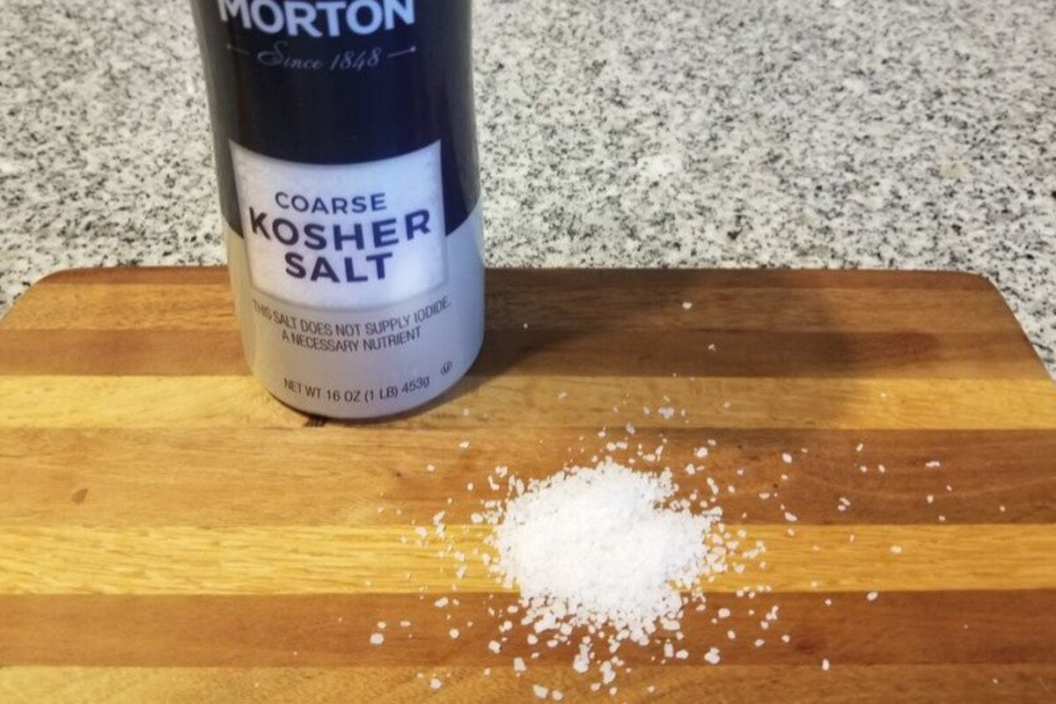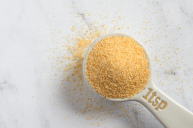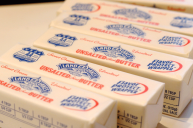Almost every recipe in existence, even for sweet foods, calls for salt. That's because salt does a lot of heavy flavors lifting in our foods. In addition to providing that salty taste we love, it helps amplify other flavors. I mean, is there anything better than salted caramel? To get the most out of salt in the kitchen, it helps to be familiar with the different kinds of salt, specifically kosher salt and how it differs from regular table salt and sea salt.
The most important thing to know is that all salt is sodium chloride, which is harvested by either allowing water to evaporate from seawater or by mining rock-salt deposits. Chemically speaking, there is no difference between table salt, kosher salt, and sea salt. Dissolve them in water and the resulting solutions all look, react and taste the same. The difference really happens in the processing, and that's why you need more than one kind of salt in your kitchen cabinet.
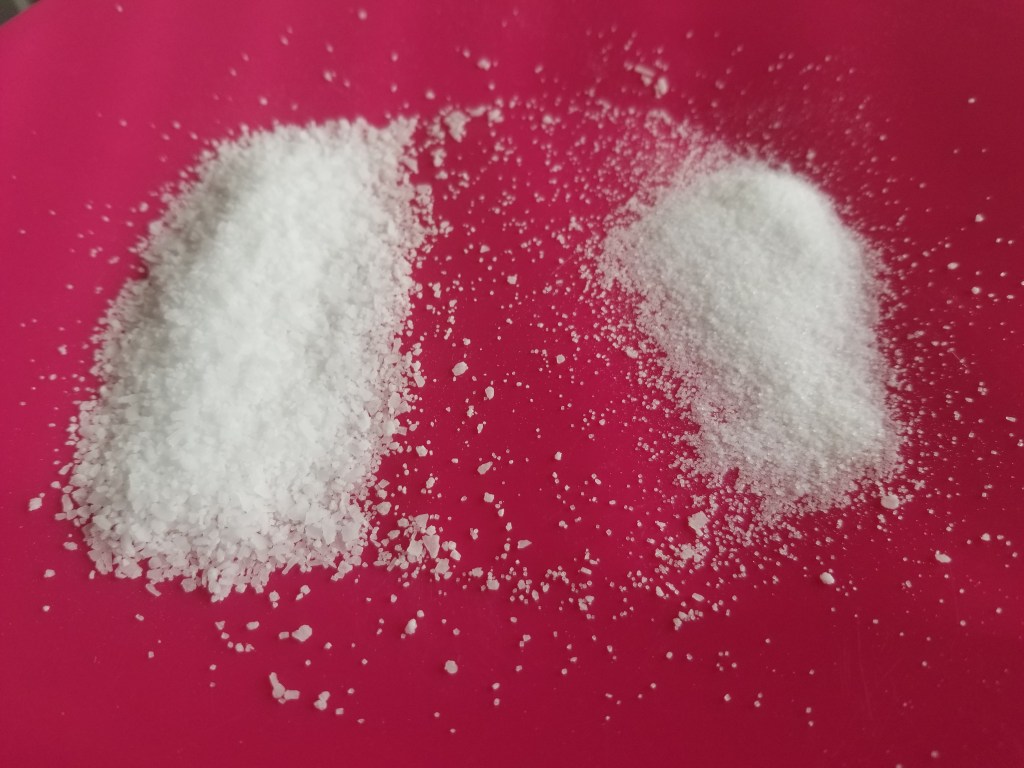
Sarah Ramsey
Regular table salt
Table salt is processed to be super fine, with salt crystals that are uniform in shape and size. Most table salt is also iodized salt, which just means iodine has been added along with anti-caking agents that help the salt flow more easily out of the box. Table salt is the kind of salt you want in your salt shaker or to use for salting pasta water.
Sea salt
Salt sold specifically as sea salt is the least processed of all the different salt types. It generally includes trace minerals that are safe to eat but may change the taste and color of the salt. The salt crystals are larger and more coarse than table salt and should be used for finishing a meal (sprinkling on at the end of cooking).
Kosher salt
Kosher salt is another coarse salt, but the crystals take the form of large, irregularly-shaped flakes. The size of the salt crystals depends on the brand that you buy.
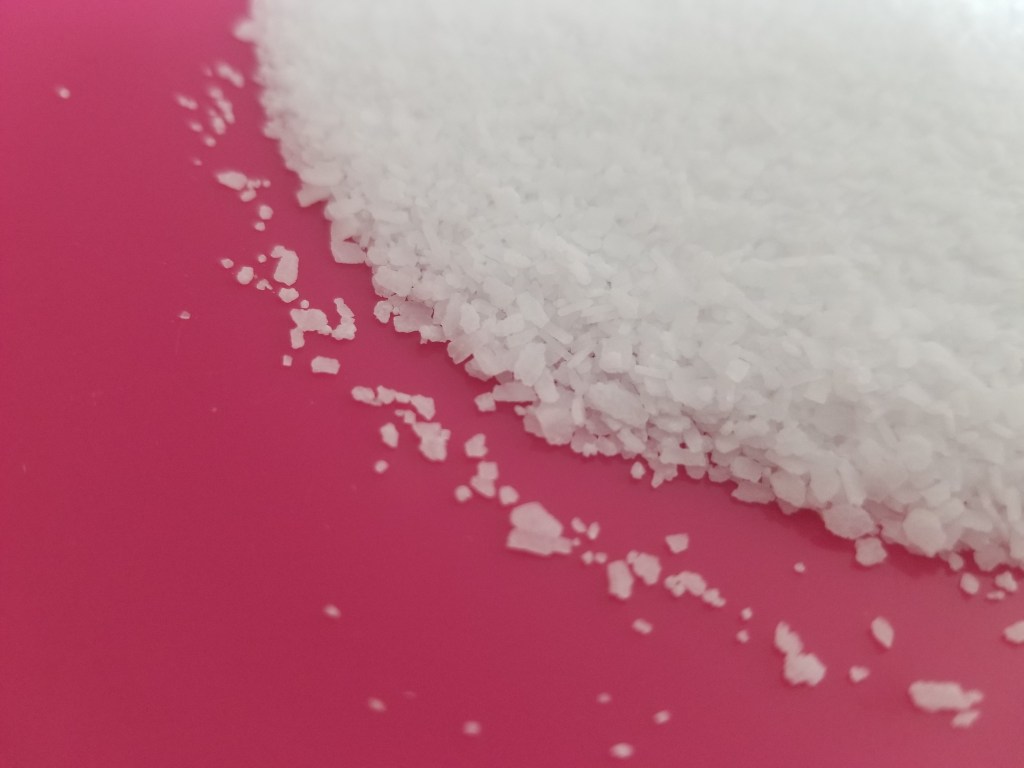
Sarah Ramsey
What is Kosher Salt?
The name kosher salt actually comes from koshering salt. It's the coarse salt used to remove blood from meat, which is part of the koshering process. Kosher salt doesn't automatically follow Jewish dietary guidelines, but once the name was used by salt brands to sell boxes of salt, it stuck.
There is a distinct texture difference between table salt and coarse salt. Table salt slides through your fingers (think about trying to clean up a salt spill), but because kosher salt flakes are bigger, they're easier to hold on to which means you have more control over how the amount you use and where it goes.
Use kosher salt anytime a recipe calls for coarse salt. Specifically, it's perfect for seasoning meat, poultry, fish and vegetables, and it's great anytime you want a pinch of salt on top of a finished dish for taste and visual impact.
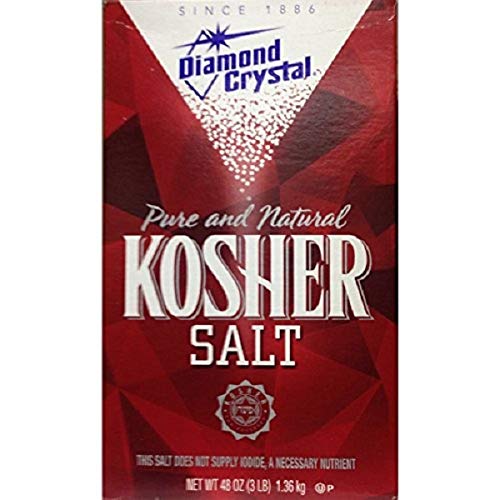
You'll find kosher salt sold in most grocery stores; two of the biggest brands are Morton and Diamond Crystal. The biggest difference in the two brands is the size of the salt crystals; Morton kosher salt is denser, while Diamond Crystal flakes are flatter.
The difference in crystal size matters if your recipe calls for a particular brand, or if you're using table salt instead. Simply put, there's more salt in a teaspoon of table salt than there is in a teaspoon of kosher salt. The good folks at Cook's Illustrated did some converting of the measurements and they say a teaspoon of table salt is equivalent to 1 1/2 teaspoons Morton kosher salt and 2 teaspoons of Diamond Crystal kosher salt.
